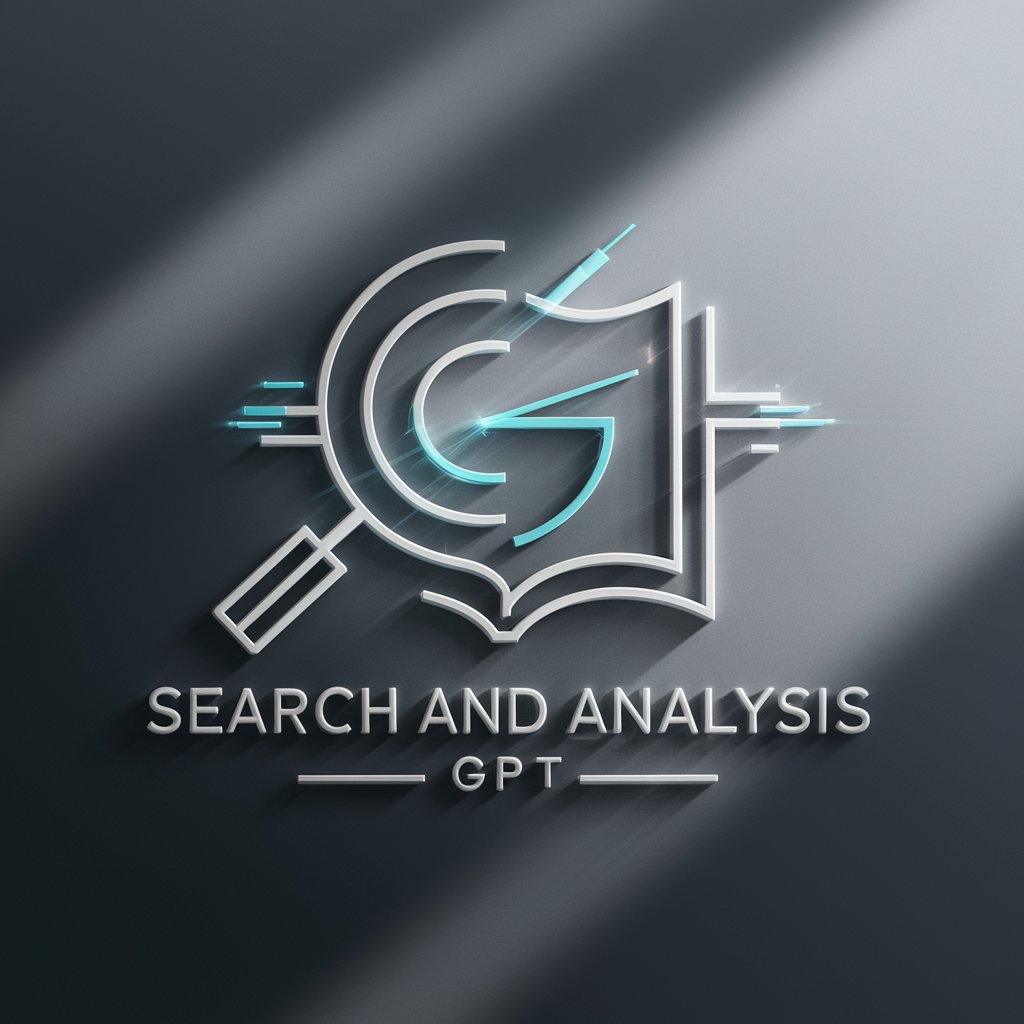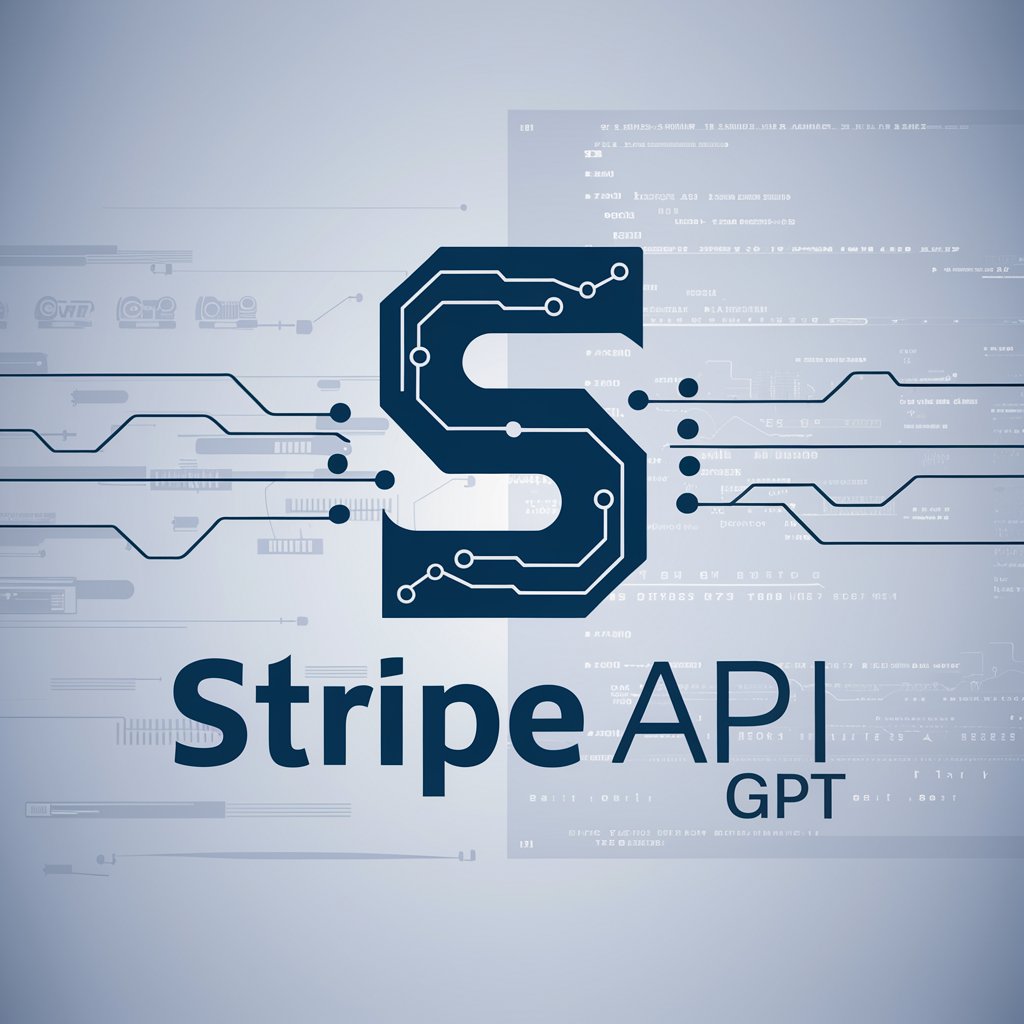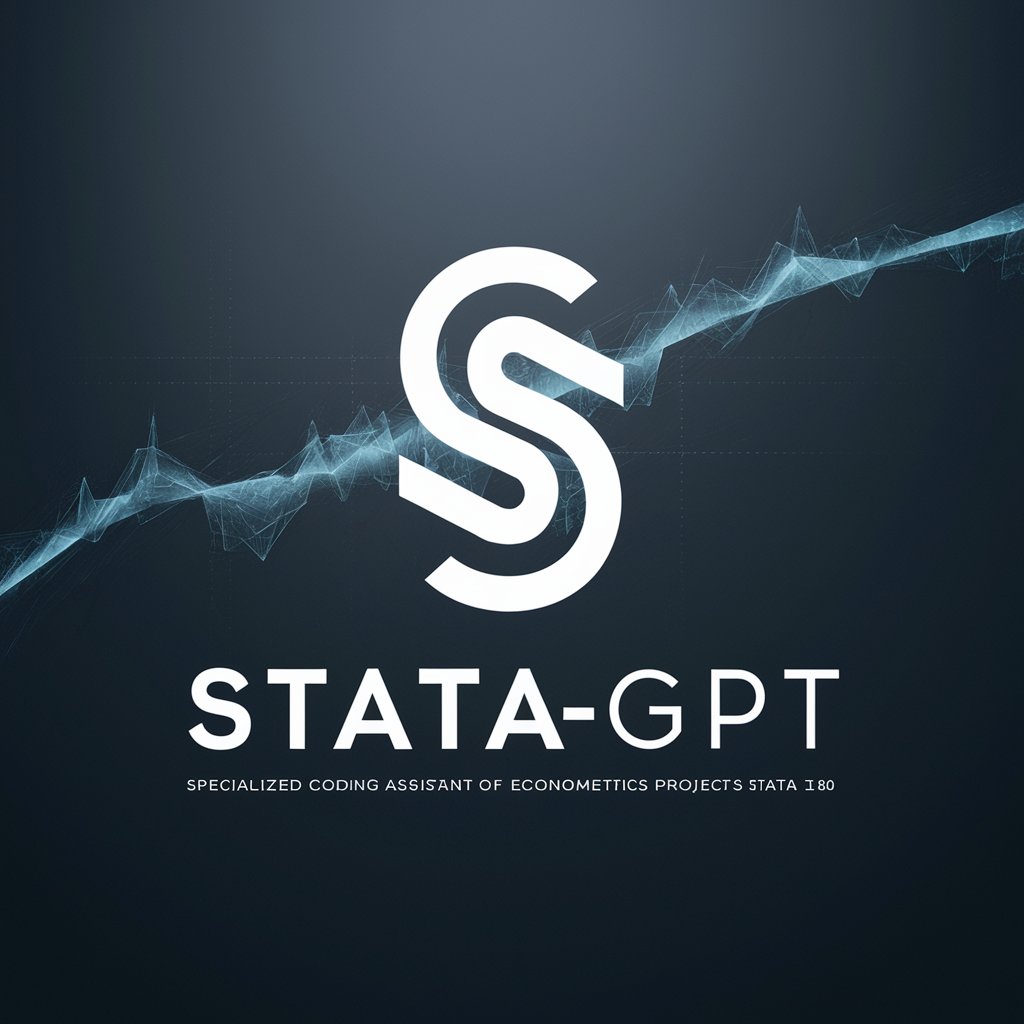Search and analysis - tool for comprehensive research analysis.

Welcome to your academic research assistant, Search and Analysis GPT.
Unlock insights with AI-powered research analysis.
Conduct a literature review on...
Find recent academic articles about...
Analyze the latest research on...
Suggest databases for studying...
Get Embed Code
Overview of Search and analysis
Search and analysis is a specialized AI tool designed primarily to assist users in conducting precise and efficient online research for academic and scholarly purposes. Its primary function is to navigate through extensive databases and the internet to locate, retrieve, and analyze academic sources such as journals, papers, and scholarly articles. It is tailored to enhance the research experience by providing access to credible information and offering tools to interpret complex data. For example, a user studying climate change could use Search and analysis to find the latest research on carbon capture technologies, filter through the most cited papers, and summarize the methodologies and findings of these studies. Powered by ChatGPT-4o。

Core Functions of Search and analysis
Advanced Search Capabilities
Example
Facilitating meta-analyses by aggregating data from multiple sources
Scenario
A user could be looking to perform a meta-analysis on the efficacy of teletherapy. Search and analysis would be used to systematically search through databases like PubMed or PsycINFO, extracting studies, and providing comparative analysis tools.
Data Analysis and Interpretation
Example
Interpreting statistical data in public health research
Scenario
A public health student may use Search and analysis to interpret complex epidemiological data, understanding trends in disease spread from scholarly articles, and employing AI to visualize this data in comprehensible formats.
Recommendation of Resources
Example
Suggesting relevant academic databases and journals
Scenario
For a graduate student beginning a thesis on renewable energy solutions, Search and analysis could recommend specific databases like IEEE Xplore or ScienceDirect, and guide the user in navigating these resources for pertinent information.
Target User Groups for Search and analysis
Academic Researchers
This group includes university professors, scholars, and postgraduate students engaged in extensive research projects. They benefit from the ability to access a broad range of academic materials and the capability to perform complex analyses on gathered data.
Students
Both undergraduate and graduate students can leverage Search and analysis to enhance their study and research projects by accessing the latest scholarly articles, understanding emerging trends in their field of study, and learning how to properly cite sources.
Policy Makers
Policy makers and governmental researchers can use this tool to base their policies on the latest research findings. It enables them to efficiently sift through massive volumes of data and publications to find evidence that supports policy decisions.

How to Use Search and Analysis
Visit yeschat.ai for a free trial without login, also no need for ChatGPT Plus.
Simply navigate to yeschat.ai and explore the Search and Analysis tool without any login requirements or need for ChatGPT Plus subscription.
Enter your research query or topic of interest.
Type in your research query or topic into the search bar to begin exploring relevant information.
Review search results and select sources.
Browse through the search results to find relevant sources. Evaluate the credibility and relevance of each source before selecting.
Analyze the retrieved information.
Carefully read and analyze the content of the selected sources. Take notes, extract key points, and consider the implications for your research.
Refine your search and explore further.
If necessary, refine your search query based on the initial results. Explore additional sources to deepen your understanding of the topic.
Try other advanced and practical GPTs
Turkish - English Translator With Grammar Support
Transforming language translation with AI precision.

Deep learning wiz
Tailoring AI Solutions with Expert Precision

Word to PowerPoint content conversion
Transform Word to Slides Effortlessly

Iya, the InfoSlips Intelligent Assistant
Unlock personalized InfoSlips support with AI.

Bitgenia
Unlock knowledge with AI assistance.

Stripe API GPT
Streamline Your Stripe Integration

Photography Picture Analyzer and Critique
Empowering Your Photography with AI

Criador de Ebook - ultebook.com
Craft your ebook with AI assistance.

Next.js 14 Engineer
AI-powered Next.js Development

Perfect Sales Pitch
Empower Your Pitch with AI

Diagramas de flujo
Visualize Complex Processes with AI

STATA-GPT
Empowering Econometrics with AI

Q&A about Search and Analysis
What types of sources can I access using Search and Analysis?
Search and Analysis provides access to a wide range of sources including academic journals, papers, books, and reputable websites.
Can I save and organize my research findings?
Yes, you can save and organize your research findings by bookmarking relevant sources, creating folders, and adding notes to each source for easy reference.
Does Search and Analysis support advanced search functionalities?
Yes, Search and Analysis supports advanced search functionalities such as Boolean operators, filters for date range and publication type, and sorting options.
Is Search and Analysis suitable for collaborative research projects?
Yes, Search and Analysis can be used for collaborative research projects by sharing saved collections of sources and notes with collaborators.
How does Search and Analysis ensure the credibility of the retrieved information?
Search and Analysis prioritizes credible sources by accessing reputable databases and filtering out unreliable sources. Users can also evaluate the credibility of each source based on authorship, publication venue, and citations.
